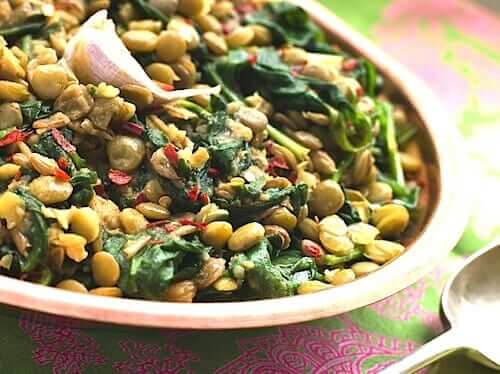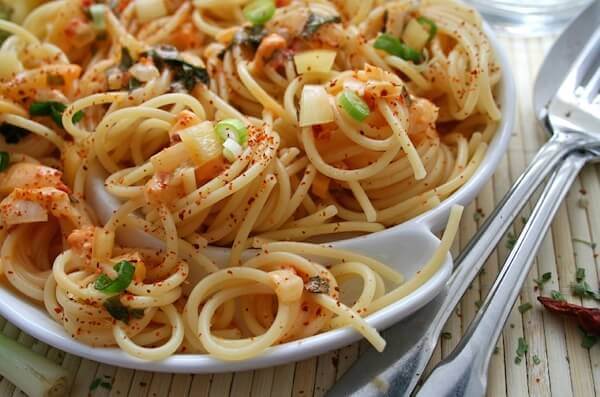Foods with prebiotics
Foods with prebiotics are fast becoming well sought after items because of their huge benefit on intestinal health. While most tend to mistake prebiotics for probiotics, the two are usually consumed together to treat all forms of stomach and bowel conditions like diarrhea, irritable bowel syndrome and constipation. Before you rush to your doctor for…
This post may contain affiliate links. Please read our disclosure policy.
Foods with prebiotics are fast becoming well sought after items because of their huge benefit on intestinal health. While most tend to mistake prebiotics for probiotics, the two are usually consumed together to treat all forms of stomach and bowel conditions like diarrhea, irritable bowel syndrome and constipation. Before you rush to your doctor for supplements, it’s important to recognize the function of prebiotics in your body and how you can consume them daily without a prescription.
When you eat any food, you stomach breaks it down and distributes nutrients by means of good intestinal bacteria. A shortage or low count of that good bacteria interrupts food processing and results in a range of stomach problems many suffer from today. Prebiotics need to be taken from a dietary source or supplement. They do not get synthesized but reside in your intestines to promote the growth of the good bacteria you need digest food. The more foods with prebiotics you consume on a regular and even daily basis, the healthier your digestive system will be.
Prebiotics vs. Probiotics
The difference between prebiotics and probiotics obviously needs to be addressed even though they usually work together. Probiotics are substances found in food that, when ingested, send healthy bacteria directly to your intestines. On the other hand, when prebiotics are consumed, they spend time in your body and stimulate the production of digestive bacteria. These two are similar in that they both look after your digestive well being but differ in how they supply your stomach with good bacteria.
Foods that are rich in prebiotics
Prebiotic-rich foods are very common and accessible. Whole grain products like bread, rice and pasta fill grocery stores today and come in packages that indicate this. Fruits and vegetables are also great foods with prebiotics, specifically bananas, berries, garlic, onions, kale, artichokes and leeks. Prebiotics can be found in processed, convenience food but you need to read labels carefully and do research to identify them in the store. If you find it difficult to eat the recommended 5 or servings of fruit, vegetables and whole grains, you can always get a supplement from your doctor to take daily. Be sure to take the correct dosage to avoid negative effects.
Whenever you can, combine prebiotics with probiotics for an overall health boost and to maintain a good digestive tract. It is not necessary to take both supplements or combine foods that contain them at the same time but try to include them in your diet. Fortunately, there are some foods that contain both pre- and probiotics. One of the most common foods is yoghurt with live cultures and not the sweetened kind. Adding fruit to plain yoghurt and having it as a snack regularly can do wonders for your digestion.
Prebiotics might not sound alarmingly important to your health like fiber or protein, but the lack thereof is easily noticeable and symptoms can be uncomfortable. If you know you’ve always had digestive problems, speak to your doctor or nutritionist about how you can incorporate a healthy intake every day.



Leave a Comment